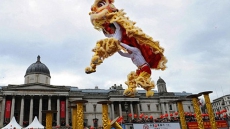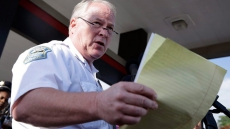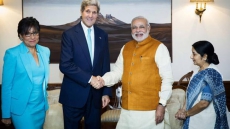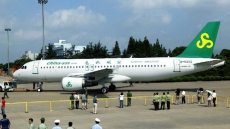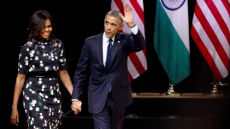WASHINGTON - At least 34 sailors are being kicked out of the Navy for their roles in a cheating ring that operated undetected for at least seven years at a nuclear power training site, and 10 others are under criminal investigation, the admiral in charge of the Navy's nuclear reactors program told The Associated Press.
The number of accused and the duration of cheating are greater than was known when the Navy announced in February that it had discovered cheating on qualification exams by an estimated 20 to 30 sailors seeking to be certified as instructors at the nuclear training unit at Charleston, South Carolina. Students there are trained in nuclear reactor operations to prepare for service on any of the Navy's 83 nuclear-powered submarines and aircraft carriers.
Neither the instructors nor the students are involved in handling nuclear weapons.
After further investigation the Navy determined that 78 enlisted sailors were implicated. Although the cheating is believed to have been confined to a single unit at Charleston and apparently was not known to commanding officers, the misconduct had been happening since at least 2007, according to Adm. John M. Richardson, director of naval reactors. The exact start of the cheating was not pinpointed.
"There was never any question" that the reactors were being operated safely, he said in an AP interview, yet the cheating was a stunning violation of Navy ethics.
Richardson said he was "loaded for bear" at the outset of the investigation, unconvinced the cheating was confined to a single training unit. But he now believes that it had not spread, and that this was one reason that the ring managed to operate so long without being discovered.
In addition to the 34 enlisted sailors who were removed from the nuclear power program and are being administratively discharged from the Navy, two more who were implicated as "minimal" participants had their non-criminal punishment suspended due to their "strong potential for rehabilitation."
Also, 32 sailors were implicated by investigators but later exonerated by Richardson, and he gave one officer a verbal warning. The officer, whom Richardson declined to identify by name or rank, was not accused of participating in the cheating. He was faulted for "deficiencies" in his oversight of the exam program, but Richardson said this was not severe enough to merit punishment.
The 68 implicated sailors are in addition to the 10 whom Richardson said are believed to have been "at the centre" of the cheating ring and remain under investigation by the Naval Criminal Investigative Service.
The scandal rocked the Navy, but details until now had remained under wraps as senior Navy officials sought to determine the scope of the cheating — including whether it was happening elsewhere — as well as the root causes and possible remedies.
Unlike an Air Force exam-cheating scandal that came to light in January at a Montana base that operates land-based nuclear-armed missiles, the sailors involved in the Navy cheating had no responsibility for nuclear weapons.
